Self-awareness is the ability to see ourselves, understand our emotions, thoughts, and values, and recognize how they influence our actions.
This crucial skill is fundamental to personal growth and well-being. It provides a foundation for making better decisions, fostering healthier relationships, and achieving greater life satisfaction.
This article explores how Stoic principles can guide us in building a life of self-awareness, offering practical techniques and insights to enhance our understanding of ourselves and our place in the world.
Understanding Self-Awareness
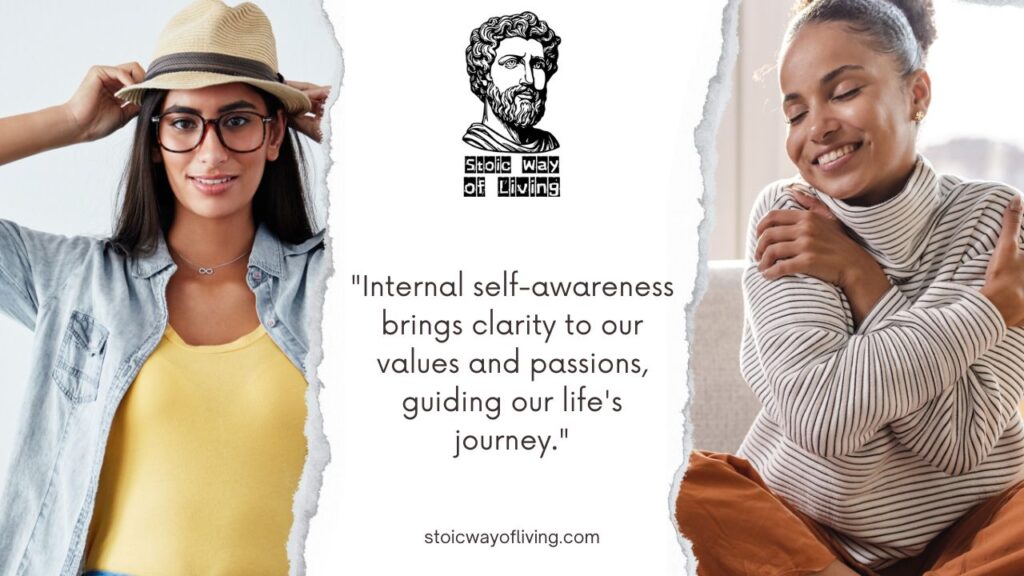
Self-awareness involves both internal and external dimensions. Internal self-awareness refers to understanding our values, passions, and reactions clearly.
External self-awareness involves recognizing how others perceive us. These dimensions impact our decision-making, relationships, and overall satisfaction.
High internal self-awareness leads to greater life satisfaction and personal control, while high external self-awareness fosters empathy and stronger interpersonal connections.
The interplay between these aspects allows us to navigate life with greater clarity and purpose.
By understanding our strengths and weaknesses, we can make informed choices, align our actions with our values, and respond more effectively to challenges.
Developing self-awareness is a continuous process requiring reflection, feedback, and a commitment to personal growth.
The Stoic Perspective on Self-Awareness
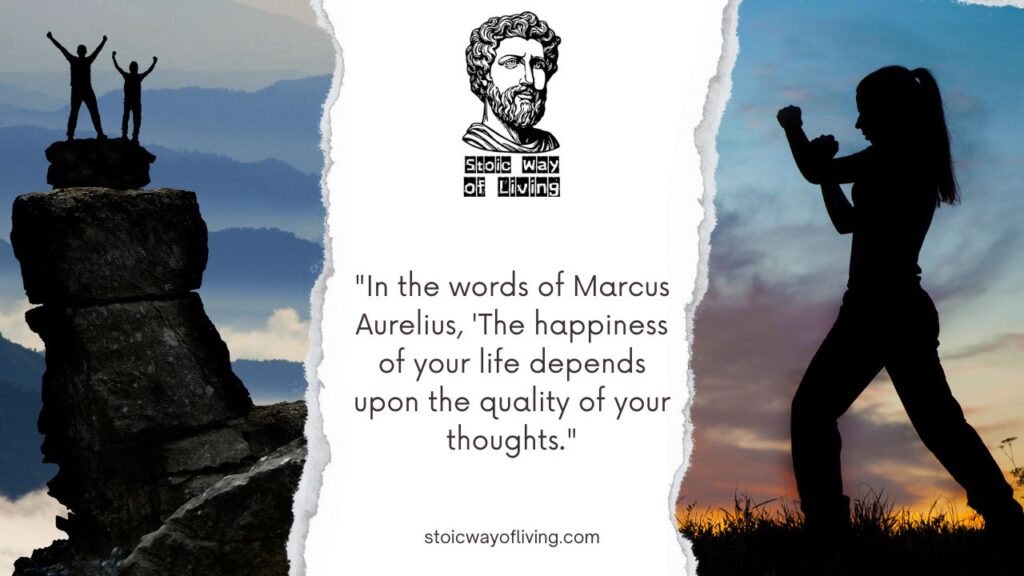
Stoicism, an ancient Greek philosophy, offers profound insights into self-awareness.
Critical Stoic philosophers like Marcus Aurelius, Seneca, and Epictetus emphasized reflection, mindfulness, and self-control.
For Stoics, knowing oneself is crucial for achieving a virtuous and tranquil life. In his “Meditations,” Marcus Aurelius practiced daily reflection to understand his thoughts and actions better.
Seneca advocated for mindfulness, encouraging individuals to stay present and aware of their emotions.
Epictetus highlighted the importance of self-control, teaching that true freedom comes from within.
These Stoic practices align closely with modern concepts of self-awareness, providing timeless techniques for self-examination and personal growth.
By integrating Stoic principles into our lives, we can cultivate a deeper understanding of ourselves and navigate life with wisdom and resilience.
Building a Life of Self-Awareness
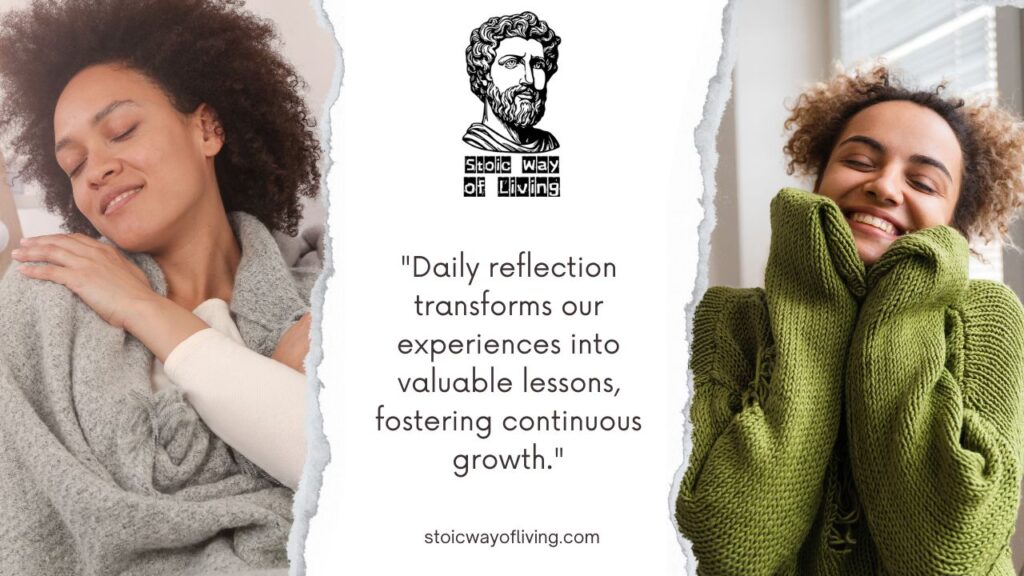
Building a life of self-awareness is a transformative journey that involves consistent reflection, mindfulness, and the cultivation of virtues.
Here are practical steps to guide you on this journey:
Daily Self-Reflection
Set aside time daily to reflect on your thoughts, emotions, and actions. Journaling is an effective tool for this practice.
Write about your daily experiences, noting any patterns or recurring themes.
Ask yourself questions such as, “What did I do well today?” and “What can I improve?”
This daily habit will help you gain deeper insights into your behavior and thought processes.
Practice Mindfulness
Incorporate mindfulness into your daily routine to stay present and fully engage with your current activities and emotions.
Simple exercises like mindful breathing, mindful walking, or body scans can help you become more aware of your immediate reactions and thoughts.
Practicing mindfulness allows you to respond thoughtfully rather than react impulsively, enhancing your overall self-awareness.
Cultivate Virtues

Focus on cultivating the Stoic virtues of wisdom, courage, justice, and temperance.
These virtues provide a framework for evaluating your actions and intentions.
For instance, practice wisdom by seeking knowledge and making informed decisions, courage by facing challenges head-on, justice by treating others fairly, and temperance by practicing self-control.
Striving to embody these virtues aligns your behavior with your core values, fostering integrity and inner peace.
Seek Feedback from Others
Seek feedback from trusted friends, family members, or mentors to gain external perspectives on your behavior.
Ask specific questions about how they perceive your actions and attitudes.
This feedback can reveal blind spots and provide valuable insights. It can help you understand how your behavior impacts others and guide you in making positive changes.
Set Intentions and Goals

Set intentions and goals that align with your values and aspirations regularly. These goals can be daily, weekly, or long-term.
You create a roadmap for your actions and decisions by clearly defining your goals.
Reflect on your progress regularly and adjust your goals as needed. This practice helps maintain focus and direction in your journey toward greater self-awareness.
Embrace Lifelong Learning
Adopt a mindset of continuous learning and growth.
Engage in activities that challenge you and provide opportunities for personal development, such as reading, attending workshops, or taking up new hobbies.
Embrace mistakes and setbacks as learning experiences. This commitment to lifelong learning fosters a deeper understanding of yourself and keeps you adaptable and resilient.
The Benefits of a Self-Aware Life
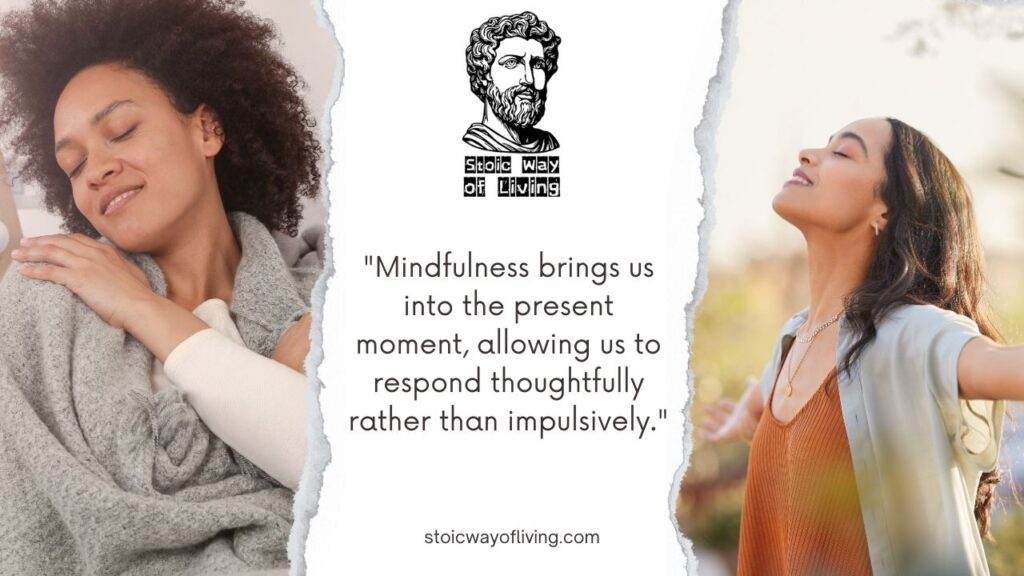
Living a life of self-awareness offers profound benefits that permeate every aspect of our existence.
Here are some critical advantages of cultivating self-awareness:
Enhanced Emotional Regulation
Self-awareness enables us to recognize and understand our emotions as they arise.
By identifying our feelings, we can manage them more effectively, reducing the likelihood of being overwhelmed by stress, anger, or anxiety.
This emotional regulation allows us to maintain a calm and balanced mind, even in challenging situations.
Improved Decision-Making
When we are self-aware, we have a clearer understanding of our values, goals, and motivations.
This insight helps us make decisions that align with our true selves and long-term aspirations.
We are less likely to be swayed by external pressures or impulsive desires, leading to more thoughtful and purposeful choices.
Stronger Relationships

Self-awareness enhances our ability to empathize with others and understand their perspectives.
By being attuned to our emotions and reactions, we can communicate more effectively and respond with greater compassion and patience.
This leads to healthier, more authentic relationships based on mutual respect and understanding.
Increased Self-Confidence
Knowing our strengths and weaknesses allows us to approach life with greater confidence.
Self-aware individuals are more likely to trust their abilities and take calculated risks, knowing they can handle the outcomes.
This self-assuredness fosters resilience and the courage to pursue our goals despite setbacks.
Alignment with Personal Values
Self-awareness helps us identify and prioritize our core values.
Aligning our actions with these values creates a sense of integrity and authenticity.
Following our principles brings a more profound sense of fulfillment and satisfaction as we feel true to ourselves and our purpose.
Greater Resilience
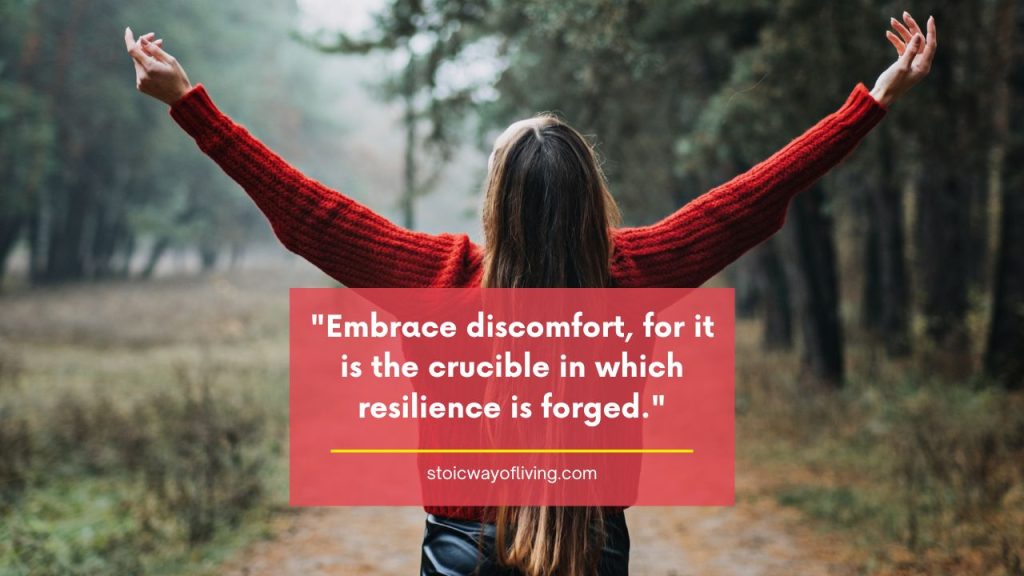
Understanding our emotional triggers and stressors enables us to develop coping strategies that enhance our resilience.
Self-aware individuals can navigate adversity with a more positive outlook, viewing challenges as opportunities for growth.
This resilience is crucial for maintaining mental and emotional well-being.
Continuous Personal Growth
A commitment to ongoing self-improvement marks a self-aware life.
By regularly reflecting on our experiences and seeking feedback, we can identify areas for growth and development.
This continuous learning process keeps us adaptable and open to new possibilities, fostering a lifelong journey of personal evolution.
Enhanced Creativity and Innovation
Self-awareness frees us from limiting beliefs and habitual thought patterns, opening our minds to new ideas and perspectives.
This openness fuels creativity and innovation, allowing us to approach problems with fresh solutions and think outside the box.
The Role of Virtue in Self-Awareness
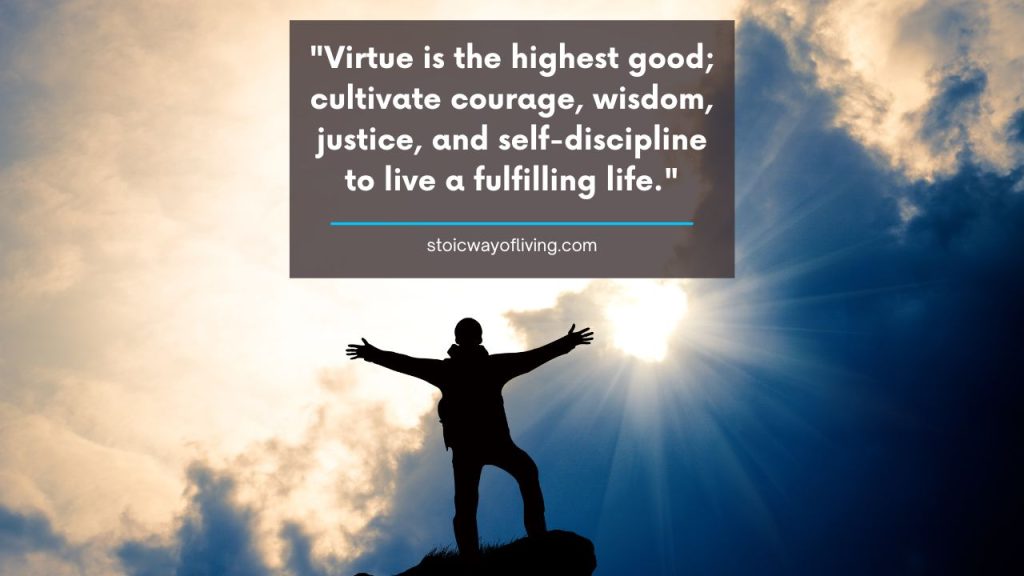
In Stoicism, the cultivation of virtue is central to self-awareness. The four cardinal virtues—wisdom, courage, justice, and temperance—serve as guiding principles for living a self-aware life.
Wisdom involves understanding the nature of reality and making sound judgments.
Courage is the strength to face challenges and act according to our values. Justice consists in treating others fairly and with respect.
Temperance is the practice of self-control and moderation.
By embodying these virtues, we enhance our self-awareness, requiring us to reflect on our actions and intentions constant
Overcoming Obstacles to Self-Awareness
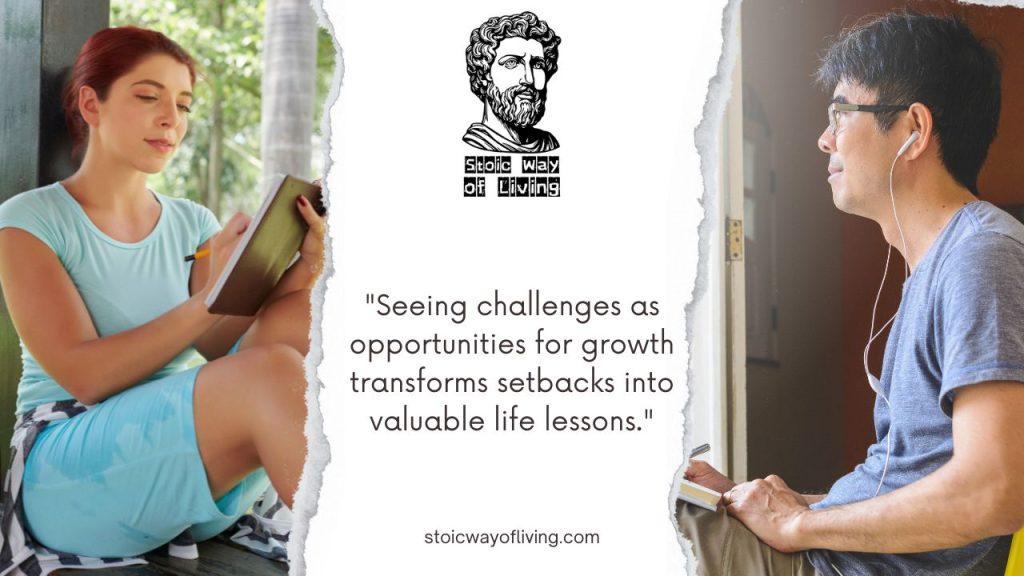
Several obstacles can hinder self-awareness, including distractions, cognitive biases, and emotional reactivity.
Stoic philosophy offers strategies to overcome these barriers.
The dichotomy of control, a core Stoic concept, teaches us to focus on what we can control and accept what we cannot. This helps reduce anxiety and emotional turmoil.
Another Stoic strategy is to embrace discomfort and adversity as opportunities for growth.
By viewing challenges as learning experiences, we can maintain a positive and resilient mindset.
Stoics also practice detachment from external opinions and outcomes, which fosters inner tranquility and self-confidence.
These strategies empower us to overcome obstacles, maintain focus on our personal growth, and develop deeper self-awareness.
See also: Finding Joy in Journaling – All You Need to Know!
Conclusion
Building a life of self-awareness is a transformative and ongoing journey.
By integrating Stoic principles and techniques, we can better understand ourselves, improve our emotional regulation, and enhance our relationships.
Daily reflection, mindfulness, self-examination, and the practice of virtues are potent tools for navigating life’s complexities with greater clarity and purpose.
Embracing self-awareness as a lifelong endeavor benefits our well-being and positively impacts those around us.
If you want to enrich your self-awareness journey further, consider exploring Marsha M. Linehan’s memoir, “Building a Life Worth Living.“ In this remarkable and inspiring book, Linehan shares her journey from a suicidal teenager to the world-renowned developer of Dialectical Behavior Therapy (DBT). Check it out on Amazon!


